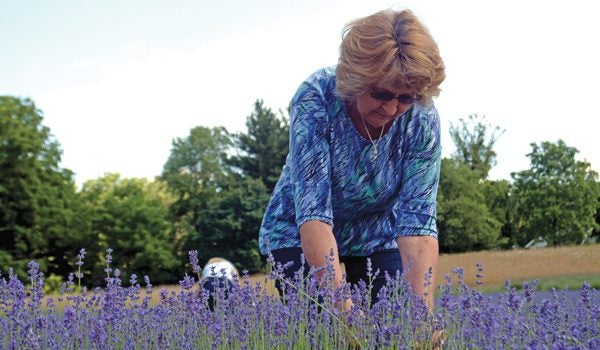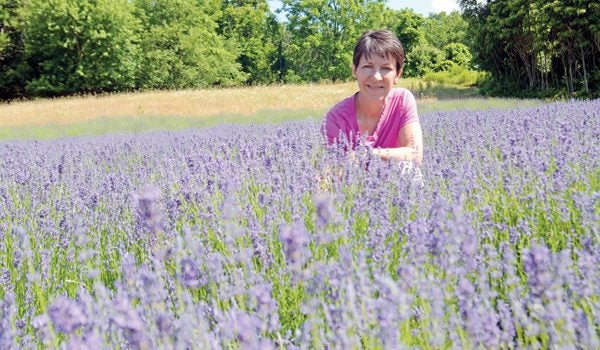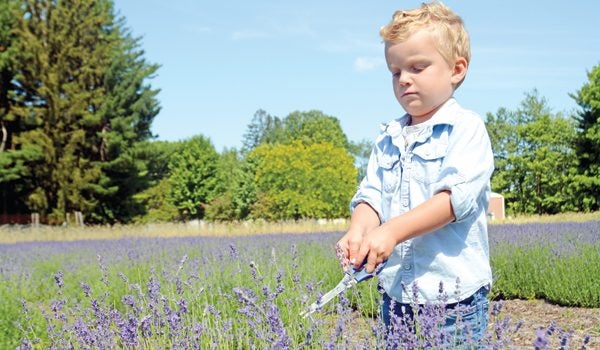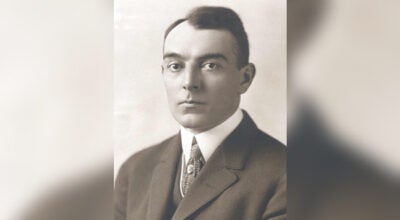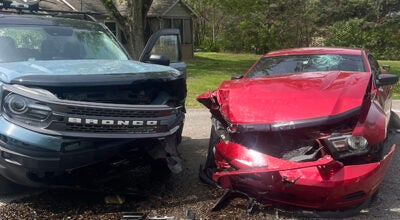Lavender Hill Farm of Niles offers seasonal opportunity to pick lavender
Published 9:07 am Thursday, June 29, 2017
Due to a staff error, the word lilac instead of lavender was used. Lilacs are not grown on the farm.
Just 10 minutes outside of Niles’ downtown city streets, more than an acre of rolling hills of lavender beckons people of all ages to pick fresh bouquets of the flowers and breath in the relaxing scent at Lavender Hill Farm of Niles, 1219 Morris Drive.
On Tuesday afternoon, Stephanie Butler, of Graner, was among them. Butler clipped sprigs of fresh lavender while her children Lyla, 2, and Noah, 5, helped her nearby.
The afternoon summer activity is one that Butler said would likely become a regular stop, as she discovered the Lavender Hill Farm only recently.
The 30-acre farm is owned by Martha Wilczynski. In addition 2.5 acres of native wildflowers and grass planting restoration, the farm has an acre and a quarter of rolling lavender hills.
Wilczynski grows eight different varieties of lavender, including five different types of English lavender, which is used for aromatherapy. Folgate lilacs also grow, and can be used for culinary purposes and creating essential oils.
Wilczynski grew up on the farm property, raising sheep and a large family garden.
In 1997, Wilczynski said she and her husband bought the property next door to her parents. For years, Wilczynski said she had been thinking about what to do with the old farm property.
“I always enjoyed flowers and gardens,” Wilczynski said. “I was thinking about a flower farm and then I discovered lavender.”
With her degrees in plant pathology and landscape architecture, Wilczynski said she saw an opportunity to put her education into practice.
While the farm has sandy soil, which is not conducive to some plants, lavenders are able to grow well in this type of terrain.
“There are so many uses for [lavender] and it has that wonderful scent that everybody loves,” Wilczynski said.
Wilczynski planted the lavender in 2001 and established the farm as a business the same year.
The lilacs bloom from mid to late-June until late July and sometimes into August. The peak bloom season is the first two weeks of July.
For $5, customers purchase a twist tie to wrap around a bundle of lavender. Those who come to pick the lavender can take as much or as little time as they want. Some who visit the farm spend a morning picking flowers and talking with friends.
“It is a very enjoyable relaxing activity,” Wilczynski said. “So besides the fact that you get to take the fresh lavender home, a lot of people do not have access to being able to sit out in a fragrant garden like [this] and cut flowers.”
Known for their calming properties, lavender can be used for a number of things, from crafts and decorations to sachet bags. The buds of the flowers deter moths and can freshen linens. Those who pick the lavender can use them simply as a bouquet to brighten a room. The dried flowers can be used for years, as long as they are kept out of the sunlight.
Some also use the lavender to complement herbs such as fennel and rosemary, which can be used in a number of dishes. The farm sells several recipe cards that use lavender in the dishes.
Also picking lavender Tuesday were Sherry Bickel and Jane Helmuth, both of Goshen. The friends said they visited the farm for the flowers and the lavender honey, which is offered alongside other lavender infused products, such as soaps and essential oils.
The honey is collected from hives that border the lilac fields. While the honey does not taste like lavender, it has a special tang specific to bees thriving on lilac nectar, Wilczynski said.
The business also has its own distiller, which allows them to produce their own oil from the flowers.
The farm is open 10 a.m. to 4 p.m. Monday to Saturday, from June to August. The farm is also open select times during the spring and fall.
For Butler, visiting the fields of lavender is yet another example of a local hidden gem.
“We are always looking for something to do outside over the summer,” Butler said. “[We want to] take advantage of all the community has to offer, which is a lot.”


